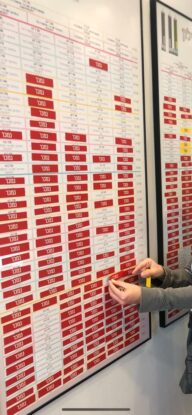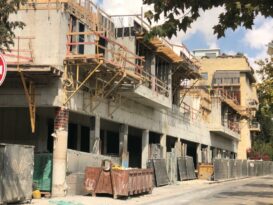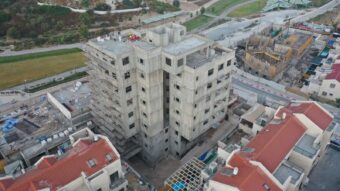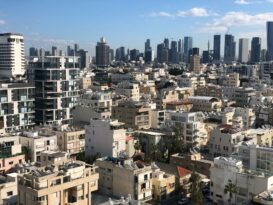The Israeli government had hoped that increasing the purchase tax for investors would moderate the demand for apartments and the rise in real estate prices, but so far, both are only getting worse. The number of new properties sold in January 2022 was 20% higher than in January 2021, and apartment prices jumped by 13% during this period. Will the Target Price plan and the expected rise in interest rates manage to control the raging market?
According to the Housing Price Index published by the Central Bureau of Statistics (CBS) last week, the measures implemented by the Israeli government – particularly the increase in purchase tax for investors – have not yet led to any real change in the prominent trends of the last two years – sharp increases in both demand and prices. Israel real estate prices rose by 2.1% per month between December 2021 and January 2022, leading to an annual increase of 13% throughout 2021 – the sharpest annual rate of increase recorded since 2009.
This is a disturbing finding, especially because the government expected that increasing the purchase tax (Mas Rechisha) for investors from a minimum rate of 5% to 8% would moderate real estate prices. However, since the legislation came into effect at the end of November 2021, apartment prices have continued to skyrocket. From December 2021 to January 2022, the price of new apartments increased at a monthly rate of 2.7%, with a total annual price jump of 13.3%.
Divided by geographical locations, the Central District, which includes the cities of Rishon Lezion, Petah Tikva, Netanya, and Modi’in, saw the sharpest price increase during 2021, at a rate of 14.5%. In the Jerusalem District, which also includes Beit Shemesh, there was an increase of 13.6%. In the Tel Aviv District, which includes Ramat Gan, Bat Yam, and Herzliya, there was an increase of 12.8%. In the Southern District, which includes Ashdod, Be’er Sheva, and Ashkelon, there was an annual increase of 11.8%. In the Haifa District, which includes Hadera and the Krayot, there was an increase of 10.9%. The only region in which the annual increase dropped – from 10% to 9.6% – was the Northern District, including Nazareth, Nahariya, Afula, and Acre.
According to data published by the CBS regarding new housing sales in recent months, the purchase tax increase not only failed to moderate rising prices but also purchase rates. From November 2021 to January 2022, a total of 16,440 new properties were purchased, a figure 22% higher than in the previous three months (August to October 2021). In January 2022 alone, when the new purchase tax model for investors had already been applied, 5,163 new apartments were purchased. This figure is 20% more than the 4,305 apartments sold in January 2021, despite the fact that the purchase tax on investment apartments was still at its old rate.
An analysis based on location reveals that the city with the largest number of new apartments purchased in the last three months was Tel Aviv, where 1,226 properties were sold – 45% more than in the previous three-month period. Ashkelon ranked second with 881 new apartments purchased, followed by 858 apartments in Jerusalem, 741 apartments in Be’er Ya’akov, and Modiin closing the Top 5 with 678 new apartments purchased during this period.
Alongside these bleak statistics, the data offered one small spark of light. Despite the huge volume of housing sales in recent months, there has been no decrease in the number of apartments for sale at any given moment in projects across the country. While at the end of January 2021, there were 44,000 properties for sale, at the end of January 2022, there was a slight increase, bringing the number up to about 45,000. This figure is cause for cautious optimism; perhaps the construction industry can provide the supply required to meet the demand for apartments, despite the fact that 2021 saw more new apartments sold than any other year throughout Israel’s history.
Unfortunately, with the exception of this single point, the rest of the data indicates that the housing market continues to follow the worrying trends of the past two years. In the current situation, purchasing a first apartment is extremely difficult, if not impossible for most.
However, there is a reasonable chance that this situation will soon change. Even if the increase in the purchase tax on investors alone has not had an effect, an anticipated interest hike is expected to increase the price of mortgages, and the “Target Price” campaign to market tens of thousands of subsidized apartments a year to first-time home buyers, is expected to greatly reduce the demand for apartments, and thus housing sales, from this sector. But will this combination of circumstances succeed in stopping the galloping of prices? We will find out in the coming months.








